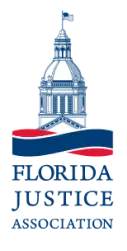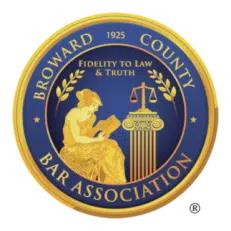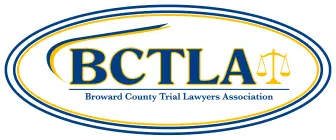
If you’ve been in a bike accident in Florida, you need to know how to file Florida bike accident claims. This guide covers everything from understanding insurance rules to gathering evidence and negotiating settlements.
Key Takeaways
- Florida bike accident claims are handled under a no-fault insurance system, which allows individuals to seek compensation from their insurance regardless of who caused the accident, and cyclists are covered under Personal Injury Protection (PIP) coverage.
- Determining fault in a bike accident involves a detailed evaluation of evidence and the application of Florida’s comparative negligence rule, where compensation may be adjusted based on each party’s degree of fault.
- Victims of bike accidents in Florida can claim economic, non-economic, and punitive damages, and engaging a lawyer can significantly aid in navigating the legal complexities and ensuring fair compensation.
Understanding Florida Bike Accident Claims
The complexities of Florida bike accident claims can be navigated by familiarizing oneself with the state’s unique legal framework. Florida operates under a no-fault insurance system, meaning that injured parties typically turn to their own insurance for compensation regardless of who caused the accident. The goal of this system is to provide victims with prompt medical treatment and financial support, eliminating the need for protracted litigation.
Cyclists in Florida are also protected under Personal Injury Protection (PIP) coverage, even if they don’t own a car. This coverage helps cover medical expenses and lost wages. Additionally, Florida law requires cyclists to follow the same road rules as motor vehicle drivers, such as stopping at red lights and using lights at night. Comprehending these foundational elements is vital as we further explore the factors influencing bike accident claims and the importance of motorcycle accident insurance in the succeeding sections.
Key Factors Influencing Bike Accident Claims in Florida
A variety of factors can have a significant impact on the potential motorcycle accident settlement value of a Florida bike accident claim, including the average motorcycle accident settlement and the motorcycle accident injury settlement. One motorcycle accident settlement example can demonstrate how road conditions are a critical factor, as poorly maintained roads can lead to severe accidents. Weather conditions also play a significant role, with Florida’s frequent rainstorms potentially increasing the likelihood and severity of accidents.
Additionally, traffic laws and the obligation of motorists to share the road with cyclists are crucial in determining liability and outcomes in bike accident claims.
Common Causes of Bike Accidents in Florida
Being aware of the common causes of bike accidents aids in both prevention and the process of filing claims. Distracted driving and failure to yield are frequent culprits in Florida bike accidents. Unsafe lane changes by drivers who do not check their blind spots also contribute to many accidents.
Speeding drivers increase the likelihood and severity of motorcycle accidents due to reduced reaction time, leading to many motorcycle accidents. This is one of the reasons that motorcycle riding is so risky. Furthermore, driving under the influence of drugs or alcohol significantly raises the risk of bike accidents for a motorcycle rider. Unsafe road conditions add another layer of risk for cyclists.
Determining Fault in Florida Bike Accidents

The insurance company plays a crucial role in this process. They gather and evaluate evidence to establish liability. This evidence can include police reports, witness statements, and any available camera footage. Knowing how fault is ascertained can aid victims in better preparing their claims and in anticipating potential outcomes.
Comparative Negligence in Florida Bike Accidents
Florida follows a pure comparative negligence rule, meaning compensation can be adjusted based on the degree of fault attributed to each party. This system allows victims to seek damages even if they are partially at fault. However, their compensation will be reduced by their percentage of fault.
This rule is outlined in Florida Statutes § 768.81, which governs comparative fault in the state.
Gathering Evidence to Prove Fault
Gathering evidence is essential to support a bike accident claim. This includes proof of the accident, the at-fault person’s negligence, and the resulting damages. Types of evidence that can strengthen a claim include accident scene photos, medical records, witness statements, police reports, and any available camera footage.
Meticulous documentation of all evidence can have a considerable influence on a claim’s outcome.
Let's Settle For More... Get Your FREE Case Review Today.
Let's Settle For More... Get Your FREE Case Review Today.
Types of Damages You Can Claim After a Bike Accident in Florida
After a bike accident in Florida, victims can claim three main types of damages: Economic Damages, Non-Economic Damages, and Punitive Damages. These categories cover everything from medical expenses and lost wages to pain and suffering, and even punitive measures for extreme negligence.
Economic Damages
Economic damages encompass:
- All current and future medical bills, including hospital stays, surgeries, prescriptions, and long-term medical care
- Compensation for lost wages if the victim misses work due to their injuries
- Compensation for lost potential future income if the injuries result in long-term disability or reduced earning capacity.
Additionally, property damage, such as damage to the bicycle or personal property, falls under economic damages.
Non-Economic Damages
Non-economic damages are less tangible but equally important. They cover pain and suffering, which includes physical pain, mental anguish, and post-traumatic stress disorder. Emotional trauma, such as anxiety and depression, can also be claimed.
Furthermore, victims can seek compensation for the loss of enjoyment of life due to serious injuries through an injury claim, which is a part of the broader category of injury claims and settlements.
Punitive Damages
Punitive damages are awarded in cases involving extreme negligence or reckless behavior. These damages aim to punish the defendant and deter similar conduct in the future.
Instances of drag racing on a busy highway or driving a passenger vehicle under the influence and causing an accident could result in punitive damages being awarded.
The Process of Filing a Bike Accident Claim in Florida
The process of filing a motorcycle accident claim in Florida entails a number of important steps, especially if you have a motorcycle accident. First, seek immediate medical attention, even if you feel fine, to identify potential internal injuries and support your motorcycle injury claim. Next, call the police to file an official report, which is crucial for insurance claims and potential legal action related to your motorcycle accident injury claim.
Begin by notifying your insurance company about the accident as soon as possible and complete the insurance claim form provided by your insurer.
Reporting the Accident
The vital first step involves reporting the accident to both the police and your insurance company. Even minor accidents should be reported to create an official record. A police report offers an unbiased account of the accident, detailing crucial information such as time, location, and parties involved. This report can prevent fraudulent claims and assist in legal disputes.
Prompt notification to your insurance company is imperative to kickstart the claims process, as they depend on the police report to ascertain liability and insurance coverage.
Filing Your Insurance Claim
Filing a motorcycle accident insurance claim requires providing your insurance company with a detailed account of the accident. Here are the steps to follow:
- Submit the police report and photos of the accident scene.
- Include any other relevant documentation such as medical records and repair estimates.
- An insurance adjuster may be sent to assess the damage to your bike and other property.
To avoid delays in the processing of your claim, make sure all submitted documents are complete and accurate.
Negotiating with Insurance Companies

- Document all medical treatments and expenses meticulously, as they serve as crucial evidence during negotiations.
- Be prepared to provide counter-evidence if the insurer disputes your claim.
- Keep detailed records of all communications with the insurance adjuster to ensure transparency.
By following these tips, you can increase your chances of a successful negotiation with the insurance company.
To confirm you receive fair compensation, it’s vital to consult with an attorney before accepting any settlement offer. If a fair settlement is negotiated, you can choose to accept the settlement and sign a release or file a lawsuit.
How Long Does It Take to Settle a Bike Accident Claim in Florida?
Settling a bike accident claim in Florida typically takes around a year, though the timeline can vary depending on the case’s complexity and whether it goes to trial. The first settlement offer from the insurance company usually arrives within 20 to 30 days of filing the claim. Negotiations can take between 30 days to six weeks.
Once a claim is settled, it typically takes around six weeks to receive the settlement check. If the claim goes to trial, the process will take longer.
Do You Need a Lawyer for a Bike Accident Claim in Florida?
Engaging a lawyer for a bike accident claim in Florida can have a significant effect on your case’s outcome. A qualified legal professional can:
- Navigate the insurance claims process, ensuring fair compensation for the victim
- Protect bike accident victims from insurance companies trying to minimize claims
- Avoid direct interaction with insurance representatives
- Protect against bad-faith insurance tactics
Moreover, a lawyer can utilize resources such as accident reconstruction experts and medical specialists to fortify your case.
When to Hire a Bike Accident Lawyer
Engaging a motorcycle accident lawyer is advisable when disputes over liability or coverage arise, or when faced with complex claims. A lawyer’s expertise is particularly beneficial in navigating these complexities and ensuring that your rights are protected.
Finding the Right Bike Accident Lawyer in Florida
Locating the right bike accident lawyer in Florida requires consideration of their experience, expertise, and success rate in handling similar cases. A skilled bicycle accident attorney can help navigate the legal system and fight for fair compensation, especially given the serious injuries that can result from such accidents.
Florida ranks first in the U.S. for the number of bicycle deaths, emphasizing the need for experienced legal representation. ELG is recognized for its experience in personal injury law, including bicycle accident cases, successfully securing significant settlements and verdicts for clients.
What to Expect During a Bike Accident Lawsuit in Florida
A bike accident lawsuit in Florida encompasses several stages, ranging from pre-trial procedures to the trial process and potential actions post-trial. If a lawsuit is filed, the timeline will be longer, with opportunities to settle even after deciding to sue.
One potential obstacle is jury bias, which can be addressed by finding an experienced lawyer to present concrete evidence.
Pre-Trial Procedures
The pre-trial phase of a bike accident lawsuit includes:
- Submission of a complaint and summons to inform the defendant
- Gathering evidence, interviewing witnesses, and building the case
- Engaging in a discovery process to obtain evidence from each other, including depositions and expert witness testimonies
A pre-trial conference is held to resolve legal disputes and discuss possible settlements before the trial date is set.
The Trial Process
The trial process kicks off with the selection of a jury, whereby potential jurors undergo questioning about their knowledge and biases. After jury selection, the trial proceeds with:
- Opening statements
- Presentation of evidence
- Witness testimonies
- Closing arguments
During the trial, both parties present their cases before a jury of six people.
Florida motorcycle accident trials, which often involve a motorcycle accident case, can last from two days to two weeks, depending on the complexity and severity of the motorcycle accident injuries.
Post-Trial Actions
Actions post-trial can include the filing of appeals if the trial’s outcome is deemed unsatisfactory. If either party believes there was an error in the trial process, they may file an appeal.
If the verdict is in the plaintiff’s favor, the defendant might appeal the decision, potentially prolonging the case.
Frequently Asked Questions
What is the no-fault insurance system in Florida?
In Florida, the no-fault insurance system means that individuals generally rely on their own insurance for compensation, regardless of who caused the accident. This system is designed to speed up the claims process and reduce litigation.
What types of damages can I claim after a bike accident in Florida?
After a bike accident in Florida, you can claim economic damages such as medical bills and lost wages, as well as non-economic damages like pain and suffering. Punitive damages may also be claimed in cases of extreme negligence or reckless behavior.
How is fault determined in a bike accident in Florida?
Fault in a bike accident in Florida is determined by the insurance company, relying on evidence like police reports, witness statements, and camera footage. Negligence, which is any action or inaction that puts others at risk of harm, is essential in establishing fault.
How long does it take to settle a bike accident claim in Florida?
Settling a bike accident claim in Florida usually takes around a year, with variations based on case complexity and potential trial involvement.
Do I need a lawyer for a bike accident claim in Florida?
Yes, it’s advisable to hire a lawyer for a bike accident claim in Florida, especially if there are disputes over liability or coverage. A lawyer can help navigate the claims process, negotiate with insurance companies, and ensure fair compensation.
Last updated Wednesday, January 1st, 2025






